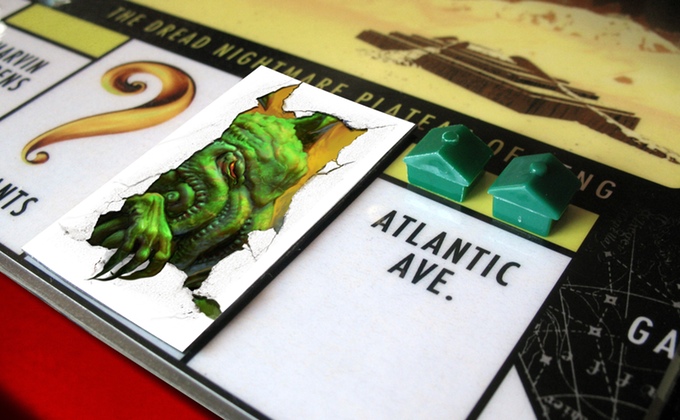- Qualcomm Launches Snapdragon 4 Gen 2 Mobile Platform
- AMD Launches Ryzen PRO 7000 Series Mobile & Desktop Platform
- Intel Launches Sleek Single-Slot Arc Pro A60 Workstation Graphics Card
- NVIDIA Announces Latest Ada Lovelace Additions: GeForce RTX 4060 Ti & RTX 4060
- Maxon Redshift With AMD Radeon GPU Rendering Support Now Available
FTC Tackles Its First Crowdfunding Case, But With Pointless Results
When board game The Doom That Came To Atlantic City hit Kickstarter in 2012, the project’s lead hoped to secure $35,000 in funding to make it happen. With its wonderful design and creators on-board with some serious clout, backers ended up funding it three-and-a-half times over. With the project’s wallet $122K fuller, it was only a matter of time before the game would be released, and all of its backers would get their rewards.
If only real-life was always like that. Ultimately, the game went an entire year with minimal updates, and not long after, the project’s creator, Erik Chevalier, called it quits. As you’d suspect, people were outraged. Promises of refunds never came to fruition, and there was nothing Kickstarter could do. Some backers were out $75, while four were out $1,000+ each.

This isn’t the first time a Kickstarter project failed to be delivered, and it’s now a scenario the FTC has begun to take seriously. In its first-ever crowdfunding-related case, the FTC has taken legal action against Chevalier, and has just issued a settlement. A settlement that accomplishes the grand sum of nothing.
“The defendant has agreed to a settlement that prohibits him from deceptive representations related to any crowdfunding campaigns in the future and requires him to honor any stated refund policy.”
I’m not well-versed in law, but it seems like common sense that if you’re dealing in business, you’d be required to avoid using deceptive practices to accomplish some goal. But – at least he has to refund people, right? Not quite.

“The order imposes a $111,793.71 judgment that will be suspended due to Chevalier’s inability to pay. The full amount will become due immediately if he is found to have misrepresented his financial condition.”
I’m not sure this is a great precedent to set. Because Chevalier is incapable of paying the money back, his requirement to do so is simply paused. It’s not mentioned that he’d have to pay it back in the future if his financial situation gets better, only that he’d have to pay it back if he lied about his current situation.
The reality of this situation is this: Chevalier used the money of 1,246 backers for personal expenses, and because that money is supposedly gone, there’s nothing that can be done. No requirement to pay back what he can, and certainly no jail time.
I’ll just chalk this up as another reason I’m slow to warm up to crowdfunding projects.




